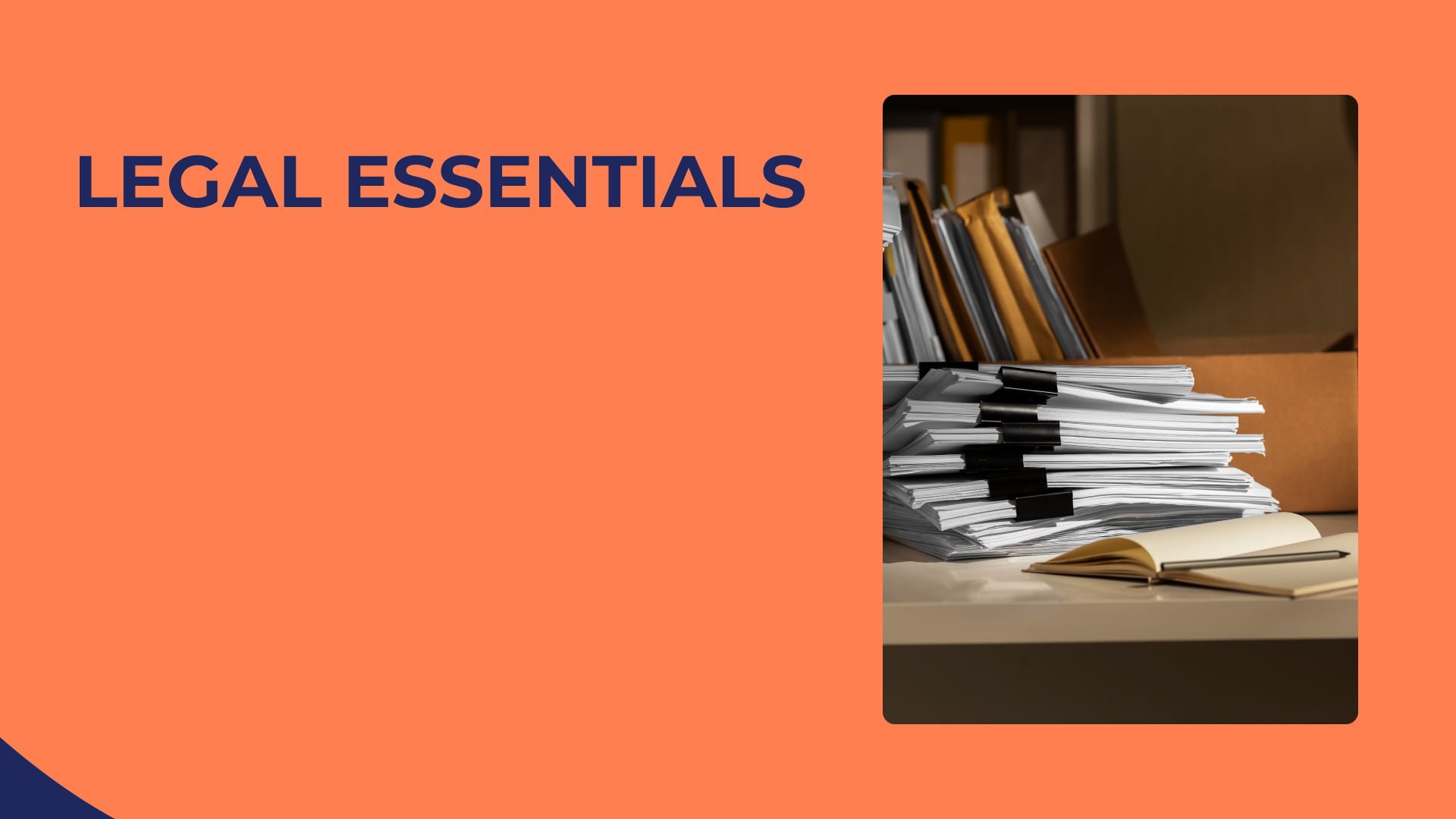
Written, Edited and Fact Checked by Taras Kim
Updated: October 21, 2024
Moving to another state may seem like a complicated process, but it's not hard to organize and make it simple. In this guide we have laid out all the aspects and details before moving and all the things to do after moving to a new state. Read it if you want to organize the moving process.
A good real estate agent is your best resource in a new state. Research ratings, experience, and certifications. Some agents have relocation certifications, which means they can be uniquely helpful. In larger, competitive markets especially, working with a locally grounded firm, such as Earnest Homes in Los Angeles can make it easier to understand neighborhood nuances, pricing differences, and what’s realistic for your timeline.
Key Takeaways
- Visit USA.gov's DMV directory to locate your state’s DMV and update your driver’s license and vehicle registration.
- Update voter registration using the USA.gov portal.
- Confirm state-specific fees for licenses and registration.
- Check your new state’s DMV website for specific fees and requirements for licenses and vehicle registration.
- Update auto, home, and health insurance with new state requirements.
- Schedule utilities for setup at your new home before move-in.
Budgeting and Planning

Moving Budget Essentials
Moving is expensive and can be more expensive than you even realize. Therefore, creating a budget is essential. Include the following items:
- Movers/Moving Trucks/Containers: Decide how to organize your move: rent a truck or use shipping containers? Or perhaps you should hire professional movers. The latter is a good option if you are moving a lot of things and are worried about their integrity. Compare prices and get quotes from at least three companies. Take into account how the companies deal with additional costs and insurance.
- Packing Materials: The cost of packing materials is highly dependent on the amount of your belongings. Boxes, tape, bubble wrap, packing paper, etc. Many movers are willing to do the packing for you and use their own materials, but if you want to save money, you need to do it yourself.
- Travel Costs: These are the costs of arriving at your new location. Factor in business or ticket costs, meals, and possible temporary lodging here. Don't forget about possible road tolls, parking, etc.
- Temporary Housing or Storage: If there’s a gap between moving out and settling in, consider storage or temporary housing costs.
If you make a table for a moving budget, it would look something like this:
| Expense | Estimated Cost |
|---|---|
| Moving Truck/Container | $500 - $4,000 |
| Packing Supplies | $100 - $300 |
| Travel (Fuel, Lodging) | $50 - $500 |
| Temporary Housing | $100 - $1,000 |
| Total | Varies |
Moving Costs: An interstate move with movers is usually set at a flat rate. It usually starts from $700 to $5,000 or even higher. It all depends on the distance and volume. To learn more read our guide on moving costs with movers.
Money-Saving Tips
Here are some cost-saving strategies for what to do when moving to a new state:
- Compare Moving Companies: Gather several moving quotes and choose the most favorable one. Don't hesitate to ask for discounts and negotiate the price (especially knowing the competitors' prices).
- Sell Unnecessary Items: Less stuff means less work and less cost. Sell or donate unnecessary items.
- Ask Friends for Help: Friends and family will be happy to help you with packing, loading and unloading.
- Use Tax Deductions: If your move is work-related, you may be able to claim tax deductions for moving expenses. Keep your receipts and consult your tax advisor.
- Look for Discounts: Check for student, military, or senior discounts, or ask about seasonal promotions (in winter and on weekdays, moving will always be cheaper).
Money-Saving Moving Tips: For even more budget moving ideas, check out our budget moving guide.
Choosing Your New Home and Real Estate Agents

House-Hunting Tips Across States
Moving to a new state means, exploring a new real estate market. You need to be able to understand the new city and have a lined up approach for finding a new home. Here are a few steps:
-
🏘️ Research Neighborhoods
First, start researching neighborhoods. Research school rankings, crime rates, travel times to downtown, and availability of public transportation. A great way to learn about a neighborhood would be to explore local forums. We recommend starting by exploring your city's themed subreddits. You can find out crime rates on NeighborhoodScout and school ratings on GreatSchools.
-
💼 Find a Reputable Real Estate Agent
A good real estate agent is your best resource in a new state. Research ratings, experience, and certifications. Some agents have relocation certifications, which means they can be uniquely helpful.
-
💻 Schedule Virtual Tours
If you can't visit the property in person, you can request a virtual tour (via video link). In addition to questions about housing, ask about nearby amenities, the layout of the home, and possible maintenance issues.
-
📊 Understand Local Market Trends
Each state will differ in its real estate market dynamics. Review recent property sales and average home prices, and monitor the market for potential shifts. Note possible changes. To research the real estate market and the average price of living in the states, we recommend two websites: BestPlaces and Zillow.
Websites to Find Homes and Apartments Across States
| Platform | Purpose | Description |
|---|---|---|
| Zillow | Buying & Renting | Offers a broad range of listings with virtual tours, neighborhood data, and property price trends. |
| Realtor.com | Buying & Renting | Features detailed property info, local market reports, and licensed agent contacts. |
| Redfin | Buying & Renting | Provides listings with pricing history, insights on schools, and competitive market stats. |
| Apartments.com | Renting | A go-to resource for apartment rentals, including options for different budget ranges. |
| Trulia | Buying & Renting | Has community insights, crime maps, and user reviews on neighborhoods for added local context. |
| Craigslist | Renting | Offers direct listings, but requires careful vetting to avoid scams; good for short-term rentals. |
| Airbnb | Temporary/Short-term Rental | Useful for securing temporary accommodations while searching for a permanent home. |
| Rent.com | Renting | Focuses on rental properties with detailed listings, including pet-friendly and furnished options. |
Avoiding Scams
When moving to a new state, be cautious of common real estate and moving scams. Here are some red flags:
- Unusually Low Pricing: If a home or moving service is priced significantly below market, be cautious. Examine typical prices to identify anomalies.
- Upfront Payments: Verified movers and agents do require upfront payments, but they are usually small. Avoid those asking for significant deposits..
- Lack of Credentials: Check agent licenses through your state's real estate board. Movers must be registered with the Federal Motor Carrier Safety Administration (FMCSA).
- Limited or Poor-Quality Photos: If the images are few or of poor quality, it could be a sign of hiding real estate problems. Also use an image search (e.g. Google) to check for copied photos.
- Vague Contact Information: Scammers usually have limited contact information. If there are no office addresses, professional emails or phone numbers, you should avoid these companies.
Safe Moving Tip: For more tips on how to avoid scams, browse trusted online forums for real reviews and government websites for listings of licensed professionals.
Downloadable Checklist for House-Hunting in a New State
To make your house-hunting process easier, download this checklist to track your progress as you search for your new home.
Download House-Hunting Checklist PDF
Packing and Preparing for the Move

Packing Essentials
Efficient packing keeps your move organized and helps prevent damage. Here are the basics:
- Create an Inventory List: Write down every item you plan to bring, room by room. This can help with insurance claims and makes unpacking easier.
- Label Boxes Clearly: Label each box with its contents and the room it belongs in. Use color-coded labels for quick identification.
- Pack Fragile Items with Care: Use bubble wrap or packing paper for breakable items. Label these boxes as "Fragile" for extra caution.
Pro Packing Tips: Read our article on DIY-packing.
Special Tips for Interstate Moving
Moving long-distance can require extra care, especially for larger or delicate items. Here’s how to handle it:
- Larger Items: For vehicles, furniture, or pianos, look into specialized moving companies. They provide the tools and expertise for secure transportation.
- Consider Moving Insurance: Some interstate moves require additional insurance for higher-value items, which moving companies can often arrange.
Legal and Logistical Essentials

Legal Obligations
Speaking of things that need to be done before moving to a new state, the legal steps are one of the main things to keep in mind. These are not complicated steps and we can help you memorize them!
First: Visit the DMV

Every state in the U.S. requires new residents to update their driver's license and vehicle registration. Most states give you 30-60 days to do this after you move in. You can use this link to find your state’s DMV office and check the specific requirements.
| State | License Update Deadline | Vehicle Registration Deadline |
|---|---|---|
| California | 10 days | 20 days |
| Texas | 30 days | 30 days |
| Florida | 30 days | 30 days |
| New York | 30 days | 30 days |
-
Gather Required Documents
Typically, you’ll need:
- Proof of Identity (e.g., passport, Social Security card)
- Proof of Residency (e.g., lease agreement, utility bill)
- Current License and Vehicle Registration
- Proof of Insurance that meets state requirements
-
Schedule an Appointment
Many DMVs require appointments, especially for new residents. Check if online scheduling is available on your state DMV website.
-
Complete the Application
Complete any necessary forms online or in-person at the DMV office. This may include applications for a new license, vehicle title, and registration.
-
Pay Fees
Fees vary by state for new licenses and registrations. Confirm costs on your DMV’s website, so you’re prepared. On average, a driver’s license costs between $20 and $90, while vehicle registration can range from $30 to $150.
-
Receive Temporary Documents
Some states issue temporary licenses or registrations while you wait for official documents by mail. Confirm details during your appointment.
Second: Update voter registration

Register to vote in your new state to participate in local elections. Be sure to check the specific registration deadline for upcoming elections in your area.
-
Confirm Eligibility
Ensure you meet your new state’s residency and identification requirements. Most states require proof of residency, such as a utility bill or rental agreement.
-
Register Online or In-Person
- Use the USA.gov voter registration portal to update your registration online in most states.
- Alternatively, visit your local election office, DMV, or public library to register in person.
-
Check Deadlines
Each state has its own registration deadline before elections. Verify these dates on your state’s election website to avoid missing your chance to vote.
-
Receive Confirmation
After registering, watch for a confirmation mailer or email. This will include details about your polling location and any additional steps if needed.
Third: File State Taxes

Tax obligations vary by state, especially if you’re moving mid-year, which may require filing taxes in both your former and new states. For each state’s tax authority and filing requirements, refer to the IRS State Tax Filings and Information page. It’s advisable to consult a tax professional to ensure compliance across jurisdictions.
Insurance Changes
Updating your insurance policies is another important step. Here’s what to do:
-
Auto Insurance
First things first, contact your auto insurance provider to update them about your move. Moving to a new state? Your rates might change based on your new location. If your premiums rise, it’s worth shopping around for better options. Also, check if your new state requires additional coverage, such as Personal Injury Protection (PIP).
-
Home Insurance
Whether you’re buying a new home or simply relocating, you need to update your home insurance policy. If you’re financing the purchase, your lender will likely require proof of coverage. Make sure to adjust your policy for any regional risks, such as flood or earthquake protection, depending on your new area.
-
Health Insurance
Don’t forget to notify your health insurance provider about your change of address. If your policy doesn’t cover your new state, explore alternatives, either through your employer or the Health Insurance Marketplace. Also, it’s essential to confirm that your preferred healthcare providers are still in-network to avoid unexpected out-of-pocket costs.
Residency Essentials: Each state has specific requirements for establishing residency, usually involving time lived, intent to remain, and an updated driver’s license or tax filing.
Setting Up Utilities for Your New Home
-
🏠 List Essential Utilities
Make a list of all essential utilities to set up, such as electricity, gas, water, internet, and trash services.
Utility Typical Providers Setup Tips Electricity Local power company or energy provider Schedule for day before move-in Gas Local gas utility or energy provider Ensure account transfer or activation Water City or municipal water department Schedule in advance, can sometimes be delayed Trash/Recycling City sanitation or private companies Confirm scheduled pickup day for your area Internet Major providers like Comcast, Spectrum Schedule installation early—appointments can be limited Cable Bundled with internet providers usually Ask about package discounts with internet services Sewer City or municipal sewer services Often included with water billing -
🔍 Research Local Providers
Use local government websites or search platforms like Google Maps to identify utility providers in your area. Common providers often have dedicated webpages for new customers.
-
🗓️ Schedule Start Dates
Schedule utilities to start a day before move-in to avoid delays. This includes scheduling internet and cable installation, which can sometimes take longer to arrange.
-
🚫 Cancel Old Services
Contact your current utility providers to schedule cancellations on the day after your move-out. Confirm any final charges and get a receipt of service termination.
Pro Tip: Some providers offer discounts for bundling services like internet and cable—ask about potential deals when setting up utilities in your new area.
Adapting to Your New State

Finding New Services
Adapting to your new home starts with finding needed services nearby.
-
Grocery Stores & Pharmacies
Use tools like Google Maps or Yelp to find nearby grocery stores, pharmacies, convenience stores and specialty stores. Explore online delivery options from local stores.
-
Healthcare Providers
Look for local doctors on your insurance company's website to see who is in the network. Explore a platform like Zocdoc for reviews and availability.
-
Schools & Childcare
If you have children, look into tour opportunities at your schools. Many schools offer tours, which can be a great opportunity to get to know the environment, teachers and classmates.
Social Integration Tips
Feeling at home in a new community takes time, but these steps can help you settle in faster:
-
Join Local Groups
Explore the city's social media, Meetup groups to find activities and interest groups.
-
Participate in Community Events
Local events are a great way to explore the culture and expand your social circle in a new city.
-
Support Your Children’s Transition
For families with children, connecting with other parents can ease the move. Schools and libraries often hold kid-friendly events and playdates where children and parents can meet new friends.
-
Find Hobby-Specific Groups
If you have a specific hobby - hiking, gaming, music or cooking - look for specialized groups online or at local establishments such as hobby stores or sports centers.
